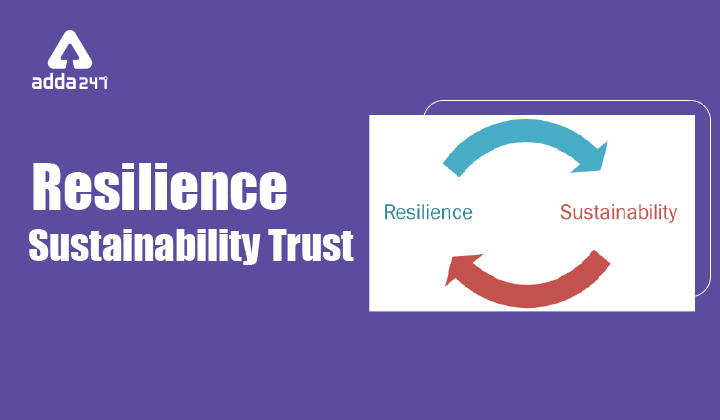Table of Contents
Resilience and Sustainability Trust: Relevance
- GS 2: Bilateral, regional and global groupings and agreements involving India and/or affecting India’s interests.
Resilience and Sustainability Trust: Context
- IMF Special Drawing Rights 2021: Recently, IMF (International Monetary Fund) has allocated $650 billion of SDRs (Special Drawing Rights) for the recovery of global economy in the post-pandemic scenario.
- In an attempt to re-channelise the SDRs so that it can be used more effectively for the development of vulnerable low- and middle-income countries, the IMF has proposed establishment of a new trust.
- The trust that will be named as the Resilience and Sustainability Trust (RST) will help the target countries combat climate change or improve their health care systems.
Resilience and Sustainability Trust: Key points
- The trust could be accessed by vulnerable middle-income countries, as well as low-income countries, and would provide financing for transition from the pandemic into a more sustainable and equitable global economy.
Resilience and Sustainability Trust: Why needed?
- Due to the IMF’s quota structure, the allocation primarily flows to high and some middle-income countries that do not face the immediate liquidity challenges.
- It means that although the allocation of SDR is substantial, it does not address—and rather it amplifies—the regional inequality in the world.
Resilience and Sustainability Trust: Benefits
- IMF’s RST could support the developing countries in tackling the climate crisis.
- RST could fill the critical gap in the international climate finance architecture when it comes to helping countries overcome the economic and financial impacts of climate change
- An RST would provide financial support and help facilitate country transitions to green, resilient economies, without leaving entire communities behind in the process.
- The IMF’s income-based criteria fails to acknowledge that many countries who are not eligible for concessional finance also need support. RST is an attempt to rectify such exclusion errors.
Tax Inspectors Without Borders India
Resilience and Sustainability Trust: Suggestions
- RST should be designed to address the entire range of climate shocks to address the economic ramifications of climate impacts.
- Any substantial financing efforts through an RST must also be affordable so that countries use it without fearing for growing debt.
- RST will need to receive regular re-allocations and contributions from countries to make the country’s transition to a low carbon, climate resilient economy achievable.
Trade and Development Report 2021
RST should work on two modalities
- Short-term financing for responding to climate shocks
- Longer-term financing for capacity-building, resilience, adaptation and just transitions.




 TSPSC Group 1 Question Paper 2024, Downl...
TSPSC Group 1 Question Paper 2024, Downl...
 TSPSC Group 1 Answer key 2024 Out, Downl...
TSPSC Group 1 Answer key 2024 Out, Downl...
 UPSC Prelims 2024 Question Paper, Downlo...
UPSC Prelims 2024 Question Paper, Downlo...




